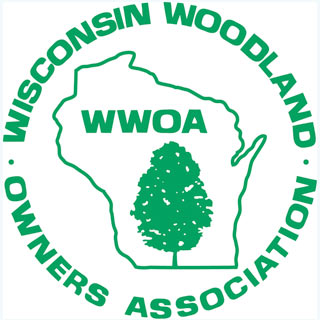To Members of the Wisconsin Forestry Community,
No doubt you’re aware of the Governor’s proposal to replace the funding that has been generated through our Forestry Mill Tax since 1930 with what is proposed to be an equal amount of General Purpose Revenue (GPR). In any of the discussions I’ve had with forestry stakeholders about this I’ve heard strong concerns and a variety of opinions, but I’ve never heard anyone suggest we’d be better off if funding for forestry was significantly reduced. If significant reductions in forestry revenue and all the programs that revenue supports are desirable, than eliminating the Mill Tax and replacing it with General Purpose Revenue makes perfect sense. Anyone who believes it’s important to maintain stable funding for forestry should recognize the elimination of the Mill Tax as the biggest threat to Wisconsin’s forestry success story in a generation.
Although the State Constitution does not mandate collection of the Mill Tax, it does mandate that Mill Tax revenues only be expended for “the purpose of acquiring, preserving and developing the forests of the state and for other specified forestry purposes”. Within our state’s general budgeting structure that is about the highest form of protection possible. It prevents those funds ($190 million in the coming biennium) from being raided for other purposes. There are dozens of communities of interest in Wisconsin, like K-12 public education, universities, Family Care, Senior Care, towns and counties, law enforcement, veterans, road builders, agriculture – the list is long – who go to the legislature hat in hand every two years advocating for GPR in the budget. Every one of those groups has seen the programs they depend on hurt in the past by budget cuts, either because General Fund revenues just weren’t sufficient, or their people didn’t sell the program well enough to the members of the Joint Finance Committee who were making funding decisions that year. Any one of those groups would consider constitutionally protected revenue for their program to be their wildest dream come true. I suspect they would also be amazed to think that members of the forestry community who have enjoyed that benefit for almost 90 years would not advocate strongly to maintain it.
Replacing constitutionally protected revenue from the Mill Tax with GPR is not an equal exchange. Legislators come and go and budgets come and go and promises today mean nothing. There is no provision in a state budget that cannot be undone or altered in the next state budget. Legislators have spent generations trying to create “lock boxes” of revenue to protect programs in the future from being raided – usually without success. Without creating trust funds or constitutional protections it’s almost impossible to do. Forestry has a secure lock box today – until at least June 30th.
It’s probably not necessary to elaborate on all the important uses of Forestry Account revenues (of which roughly 80% is revenue from the Mill Tax) because I expect that at least some forestry programs affect something that is important to you. The Legislative Fiscal Bureau’s Information Paper #60 on the Conservation Fund has useful detail beginning on page 26. It is worth noting though that the constitutional requirement that Mill tax revenues be spent on forestry purposes is intentionally broad. For anyone who believes our current forestry programs are mis-directed or that we need more funding for one thing and less for another, which I am sure we could all offer opinions on, I would suggest that’s a different debate entirely. There is no restriction on the ability of the legislature to redirect forestry related spending in a budget, but the options to do that only get worse if there’s no stability in funding. Other Conservation programs such as Parks, Water Resources, or Endangered Resources that were shifted to GPR in the past have all seen their share of GPR funding drop substantially or be eliminated altogether.
None of us has a crystal ball, but we probably all share some idea of how uncertain the future for forestry will be in Wisconsin. Shifts in globalizing businesses can change or end timber markets overnight. The next destructive insect pest could be even more devastating than the Emerald Ash Borer. The documented and ongoing 60 year trend of shorter winter seasons is going to force changes in logging operations and may continue to drive operators out of logging, or force surviving businesses to make new investments in equipment and technology. Any of those changes by themselves could be devastating throughout the supply chain. Stable forestry funding could allow investments needed to address and mitigate those threats.
The legislators who will be asked to make a decision on approving or rejecting this change in funding will be looking to see who’s for it and who’s against it. On an issue like this a unified constituency will be powerful. A divided or silent constituency will lead many legislators to conclude it’s not their battle to fight. One thing I believe is certain however – getting the legislature to restore Mill Tax Funding in this budget will be a relatively easy lift if our voices are unified. If this proposal passes however we can be almost certain that it would be significantly more difficult, if not impossible, to ever restore it in the future. Please consider making your voice heard on this important issue. Without wanting to seem overly dramatic, I believe this would be a good time for all of us to be mindful of our history and the role we all play in creating it.
Thank you for considering this and all the best,
Fred Clark
forester and former state legislator
